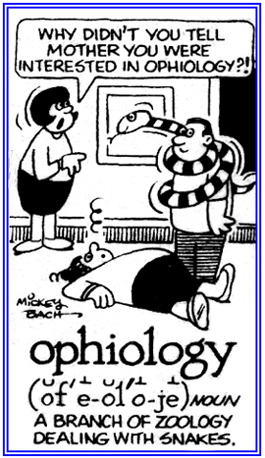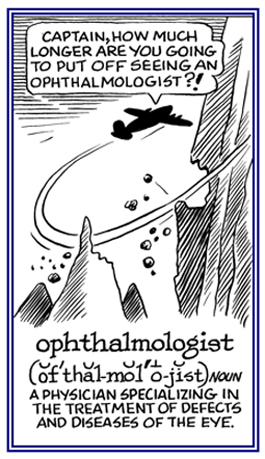-ology, -logy, -ologist, -logist
(Greek: a suffix meaning: to talk, to speak; a branch of knowledge; any science or academic field that ends in -ology which is a variant of -logy; a person who speaks in a certain manner; someone who deals with certain topics or subjects)
The word -ology is a back-formation from the names of certain disciplines. The -logy element basically means "the study of ____". Such words are formed from Greek or Latin roots with the terminal -logy derived from the Greek suffix -λογια (-logia), speaking, from λεγειν (legein), "to speak".
The suffix -ology is considered to be misleading sometimes as when the "o" is actually part of the word stem that receives the -logy ending; such as, bio + logy.
Through the years -ology and -logy have come to mean, "study of" or "science of" and either of these suffixes often utilize the form of -ologist, "one who (whatever the preceding element refers to)".
The examples shown in this unit represent just a small fraction of the many words that exist in various dictionaries.
The dermatologist that Mary went to said that the formal discipline of onychopathology did research in the past on the kind of ailment she had regarding her nails becoming dry, yellowish, and cracking.
2. Someone who is versed in the natural history of serpents.
2. That part of natural history dealing with serpents: In a magazine about the environment, there was an article about ophiology, which interested Linda very much because her hobby was learning as much as possible about all kinds of snakes.

Go to this Word A Day Revisited Index
so you can see more of Mickey Bach's cartoons.
2. The toxicology of snake venoms.
2. Etymology: from Greek opthalmos, “eye" + -logia, "the study of".

Go to this Word A Day Revisited Index
so you can see more of Mickey Bach's cartoons.
2. The branch of health science dealing with the eye, including its anatomy, physiology, pathology, and other aspects.


